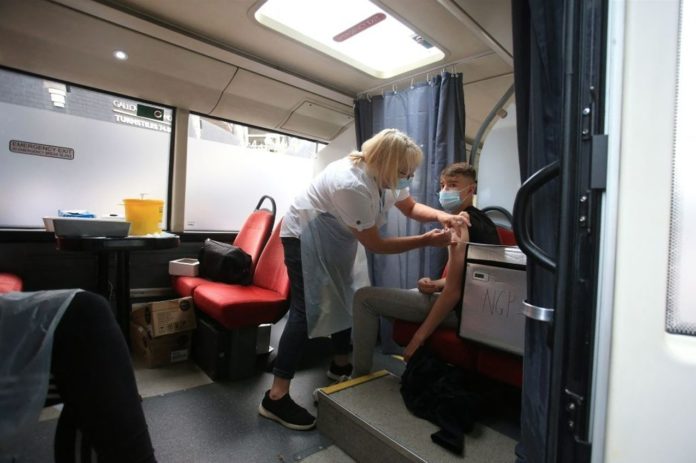“This supports previous data that has been coming out from our group and others that show patients on certain immunosuppression have a blunted effect to the COVID-19 vaccine,” says one of the researchers.
According to findings published in Arthritis & Rheumatology, around 29 percent of individuals with systemic lupus erythematosus have a poor response to the COVID-19 vaccination, with immunosuppressive medication associated with lower protection.
“This supports previous data that has been coming out from our group and others that show patients on certain immunosuppression have a blunted effect to the COVID-19 vaccine,” says Peter M. Izmirly, MD, of the New York University Grossman School of Medicine.
“This study focused on patients only with systemic lupus erythematosus and showed that a lower response to the vaccine was independently associated with being on any immunosuppressive agent, with the exception of antimalarials such as hydroxychloroquine.”
Izmirly and colleagues recruited participants from the New York University Lupus Cohort to investigate seroreactivity and illness flares in patients with SLE following COVID-19 vaccination. The cohort, according to the researchers, is a prospective convenience registry that is accessible to enrolling any adult with SLE seen at NYU Langone Health or Bellevue Hospital Center since 2014.
Izmirly and colleagues included in their study all persons with SLE who intended to get any available COVID-19 vaccination. Refusal to provide blood following the second dose of the vaccine, a completed immunisation schedule, or the inability to communicate in English, Spanish, or Mandarin were all considered exclusion factors. As controls, healthy persons without known rheumatic disorders and who were not using immunosuppressive drugs were recruited.
The trial enrolled total 90 patients with SLE and 20 healthy controls, who all received the full COVID-19 vaccination regimen. 79 percent of patients with SLE were on hydroxychloroquine and 29 percent were on systemic glucocorticoids, with a mean dose of 7 mg prednisone. Additionally, 42 percent were taking at least one immunosuppressive medication, with mycophenolate mofetil (MMF) being the most often used at 21 percent, followed by belimumab at 11 percent. Around 17 percent were taking more than one immunosuppressant.
Izmirly and colleagues assessed B-cell responses using IgG seroreactivity to the SARS-CoV-2 spike receptor-binding domain (RBD) and SARS-CoV-2 microneutralization, as well as T-cell responses using IFN- production. They used the hybrid SLE disease activity index (SLEDAI) to assess disease activity, with flares identified using the SELENA/SLEDAI flare index.
According to the study, 28.8 percent of patients with SLE had an IgG response less than 100 units/ml. The researchers discovered that any immunosuppressive medication or prednisone use, as well as a normal anti-dsDNA level before immunisation, were associated with lower vaccine responses.
Additionally, IgG seroreactivity to the SARS-CoV-2 Spike RBD was found to be significantly linked with coronavirus microneutralization titers and antigen-specific IFN- production.
Similar reductions in IFN- production were observed in a subset of patients with inadequate antibody responses. SLEDAI scores were comparable pre- and post-vaccination.
Finally, only 11.4 percent of patients developed a clinical flare after vaccination. 1.3 percent of reported flares were severe.
“Overall, the proportion of patients who flared was low, and severe SLE flares were rare,” Izmirly said.
“The results of this work are reassuring regarding the safety of initial vaccination and suggest further studies are needed to assess efficacy and safety of booster vaccination in patients with suboptimal responses to the standard vaccination regimen.”
Photo by LINDSEY PARNABY/AFP via Getty Images
